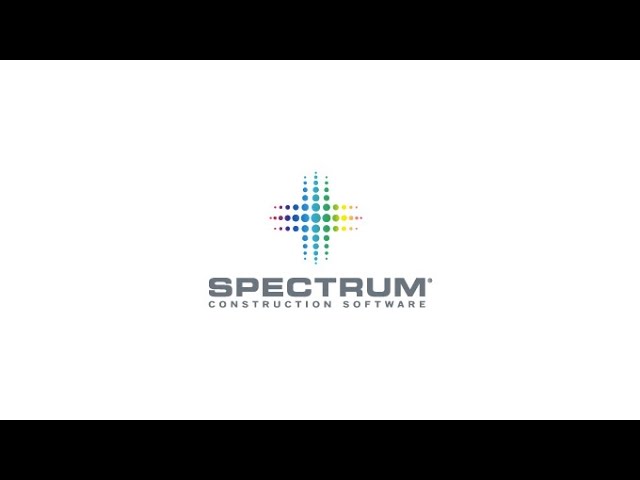With 600-plus field employees assigned to jobs in 38 states, the Gaylor, Inc. (www.gaylor.com) electrical contracting company of Carmel IN faced a formidable challenge: how do you collect and maintain timely, accurate data from the field?
After years of gathering field data with a hodge-podge manual system, Gaylor, Inc. switched to a better solution in late 2009: Spectrum Mobile from Dexter + Chaney ( www.dexterchaney.com). Nearly 170 Gaylor, Inc. job-site supervisors employ Spectrum Mobile to submit their time reporting data faster, easier and more accurately. They operate the product using rugged mobile smart phones equipped with Windows Mobile software. The company’s utility division also uses Spectrum Mobile to record equipment usage.
Labor reporting is now performed on a daily basis, rather than weekly. The benefits of Spectrum Mobile quickly became obvious: it saves time for both the office and field staffs, reduces the company’s labor costs and provides the field with up-to-date information to help them manage their jobs profitably.
Jim Savage, Gaylor, Inc.’s long-time chief information officer, estimates—“very conservatively”—that the company saves about 200 hours per month in “processing time,” split evenly between the office and field staffs. That includes time previously spent on paperwork collection, data entry and related tasks that has been eliminated. “That equals about $10,000 per month in labor savings for the company,” Savage explained.
Thanks to Spectrum Mobile, the field staff no longer tracks time manually, and the office staff doesn’t have to enter that information by hand into Dexter + Chaney’s Spectrum® Construction Software. Phone calls from the office to the field staff—to decipher handwriting or check on the status of time cards—are a thing of the past. Each side of the business has eliminated about 100 hours per month on “wasted time” that is now devoted to more productive tasks.
“Spectrum Mobile helps us keep the same size back-office staff and spend less time on the fire drill of getting all the paper processed every week,” Savage explained. “It has also clearly benefited the operations side of the business. That’s the key: if you want to sell a streamlined process that helps both operations and accounting, you have to make the effort to convince the operations people that they’re going to benefit.”
Spectrum Mobile also is a morale booster, since reporting, record-keeping and payroll is much simpler for both sides of the business.
“Our time reporting is much more accurate and timely with Spectrum Mobile,” said Savage. “Because they’re doing it on a daily basis—rather than weekly—our field supervisors have a lot less information to go back and piece together. They’ve learned that the data is more accurate and the time-reporting task is not nearly as difficult if you break it up into small pieces and perform the data entry much closer to when the work actually happens.”
Out With The Old
Prior to installing Spectrum Mobile, there was no consistent method for collecting field data. Every job-site supervisor, it seemed, had their own way of doing things. “We had a standard time sheet that some folks were filling out in Excel and e-mailing to the office,” Savage recalls. “Some were faxing it in, and others were turning in the paper. Thus, there was a huge data-entry job at the office each week. It was a fire drill to get things done in the office so that our employees could get paid at the right time.
“There was a lot of thinking and reinventing the wheel that took place on a weekly basis. If one supervisor who had a certain way of recording labor hours was on vacation and somebody else had to cover for them, there was a lot of extra effort—by both the field and office staffs—to validate labor hours prior to processing payroll. Now, we’ve been able to standardize the entire process with Spectrum Mobile; that’s been a positive thing.”
Data Management
Data management is critical to the success of Gaylor, Inc., a diversified, decentralized electrical-contracting company founded in 1984 that serves commercial, industrial and governmental customers.
The company performs electrical and utility work—building electrical systems installations, substations and transmission-and-distribution systems—works with solar and other alternative energy sources, and provides customers with 24-hour service and maintenance. (The company’s mantra: “What is it you need? Gaylor can do it!”) Its 10 branches are located in Indiana, Ohio, Kentucky, Arizona and the Carolinas.
Gaylor, Inc.’s steady growth has been built on core values—including integrity, customer service, safety, performance and teamwork—that guide employee performance and provide a checklist for clients’ expectations. It consistently earns high marks from its customers, vendors and the electrical trade for living up to those values.
In With The New
Gaylor, Inc. tracks the time of more than 90 percent of its field employees with Spectrum Mobile, and is closing in on 100 percent. Job-site supervisors employ Spectrum Mobile to replace paper time sheets. They collect job number, phase code, cost type, pay type, overtime and other variables. Information flows from Spectrum Mobile to the Payroll module in Spectrum at the office for processing.
At most job sites, supervisors enter check-in/check-out information at the end of the day. At larger job sites—with more than 50 employees on a single crew, for example—each employee is assigned a bar code that goes on their employee ID card. Handheld units scan the employees in and out and calculate the duration of their time at the site.
Bar-code scanning with Spectrum Mobile ensures that Gaylor’s labor tracking at larger sites is completely accurate. If, for example, an employee arrives at a job site at 8:05 a.m. and leaves at 3:50 p.m., he’s paid for that time—not the hours that might otherwise be “rounded up” to an 8 a.m. arrival and 4 p.m. departure. Combine that with supervisors entering employee check-in/check-out information on other jobs at the end of each day—rather than weekly—and Savage estimates that Gaylor saves approximately 1 percent in annual labor costs ($270,000).
Spectrum Mobile allows supervisors to easily collect employee absentee information consistent with the company’s attendance policy. When an employee is absent, the supervisor submits a detailed explanation that includes the duration of the absence, timing and other variables.
The utility division tracks approximately 150 pieces of equipment with a custom data-entry screen in Spectrum Mobile. It records, in a single entry, both the hours that the employee works and the hours of the piece of equipment.
Review And Approval Process
Spectrum Mobile provides a flexible procedure that enables project managers and office staff to approve labor hours before they’re processed for payroll. Because Gaylor, Inc. collects labor hours on a daily basis with Spectrum Mobile—rather than weekly—those hours are available for use within Spectrum for tracking up-to-date labor, job cost and productivity reporting. That provides “advance notification” of the costs that are accruing during the week, even though payroll isn’t processed until the end of the week. Daily visibility to labor costs and productivity is critical to Gaylor, Inc.
“With Spectrum Mobile, we’re able to give feedback to the office and to the project management team about what’s going on in the field,” Savage said. “It gives greater accountability to the field supervisor to make sure that time is entered on a daily basis and that it’s accurate.
“That also helps project management deal with situations where we’ve got unanticipated spending on overtime or we’re spending unanticipated amounts of time on a particular phase code or area of a job. It helps them see those things sooner, so that they can address them before they become a huge problem.
“Labor is one of those areas where, if you have an issue, it can get out of control really quickly,” Savage said. “So the sooner you find out about an issue, the better. That’s one of the things that’s exciting about Spectrum Mobile.”
Decision Process
Gaylor, Inc. asked a series of hard questions—internally and with Dexter + Chaney—over several months before deciding to install Spectrum Mobile. A key consideration: the product had to benefit the operations/field side of the company as much as accounting/back office. It also had to keep pace with the company’s growth. Gaylor, Inc. proceeded with Spectrum Mobile only after it had confidence in the answers.
“That was a concern before we rolled out Spectrum Mobile,” said Savage. “We asked ourselves: are we taking essentially an office process and getting labor savings in the office by pushing it into the field? Plus, we have some pretty aggressive organizational growth goals, along with substantial geographic hurdles and a lot of decentralization.
“Most of our jobs used to be located in and around the Indianapolis area, but now we’re operating in 38 states. So the challenge is to grow the organization profitably with the number of work opportunities that you have, without growing your back office quickly. Unless we found a way to automate and streamline our time-collection process, we were looking at adding more people to be able to handle the paper process. We also wanted a product that was flexible and customizable.”
Savage noted that the company has grown 56 percent—from approximately $90 million to $140 million in annual revenues—since installing Spectrum in 2004. During that time, the size of the administrative staff has only increased 8 percent, from 75 to 81 employees.
As part of its decision-making, Gaylor, Inc. researched the field-data collection process of electrical-contracting companies of similar size. One result: operations and accounting personnel from those companies emphasized, based on experience, that both sides of the business would benefit from an automated system. Gaylor, Inc. was told that it would enjoy labor savings and the ability to track current labor costs through the previous day’s work. When the research process was complete, and with Spectrum already in place, the decision to install Spectrum Mobile ultimately was—in Savage’s words—a “no-brainer.”
Results
The benefits of Spectrum Mobile have been split almost equally between the two sides of the\ business, according to Savage. Spectrum Mobile has enabled field supervisors to spend less\ time in the trailer working on administrative processes and more time in the field doing construction\ work—walking the job, interacting with employees, planning and organizing.
“That’s one of the things that I think any construction company that’s considering Spectrum Mobile can hang their hat on: it’s going to help in the field,” Savage said. “That is really where the money is made or lost.”
Spectrum Mobile also indirectly assists with the company’s estimating efforts.
“It’s a natural progression,” Savage explained. “If job cost is more accurate, you’re not only spending less on labor than you otherwise would have, but you’re also getting more accurate historical information that makes the company more competitive from a bidding standpoint.”
Mobile Phones
Gaylor specifically chose a solution that would run on a mobile phone, for cost and operational reasons. The data entry screens were structured to simplify and standardize data entry and make the process as quick and painless as possible.
“We didn’t want to have a lot of expensive, bulky hardware, because we had so many supervisors and active job sites to cover,” Savage explained. “We wanted them to have one device that they could use for their phone, e-mail, scheduling and time entry. There are distinct advantages to that, because it gives us a lot of portability and flexibility that it probably wouldn’t have otherwise.”
Gaylor trained its field supervisors in groups, at job sites spread over a 300-mile radius from a typical branch. The company also faced the challenges of cultural change, moving from a paper to an electronic process. It all worked out.
Savage recalls: “Once we had our field people trained on the system and they were actually doing it on a daily basis, we got a lot of comments like, ‘This is so simple, you’re crazy if you can’t figure it out.’
“If you spend the time planning the data entry screens appropriately, the application is designed so well that it’s drop-dead simple,” Savage explained. “It’s really designed around collecting the bare amount of information necessary to keep the process going; it’s about collecting the information and staying out from underfoot. With that design and philosophy in mind, it’s so easy that it’s ridiculous.”
Following their training, Gaylor, Inc. started sending automated reports to the field supervisors that gave them immediate feedback about up-to-date labor hours and costs on their jobs.
“We were quickly able to give them a daily report not only of what they’d entered, but also data analysis—including composite rates and absentee information—which you can’t do with paper time sheets until everything is entered and processed,” said Savage. “They appreciated that proactive feedback, because it gave them an ‘early warning system’ to quickly address any problems that may have arisen on their jobs.”
Customizable
If Savage can choose one feature of Spectrum Mobile that appeals to him the most, it’s the product’s flexibility. Because Spectrum Mobile runs on the Microsoft SQL Server database platform, it can be customized to meet Gaylor, Inc.’s changing needs.
“We like the fact that, even though the primary purpose is to collect payroll information, the system gives us the flexibility to collect as much information as we want in the field on the same platform,” he said. “If we want to collect items in the future like quantities installed or perhaps even safety incidents, near-misses—those types of things—we don’t have to buy a separate application or a separate platform to do that. Plus, we don’t have to train employees on a separate application or platform.
“Spectrum Mobile is customizable, it runs on a SQL database and we can do whatever reporting off of it that we need to do—just like we can with Spectrum. That’s what’s really gotten us the most excited.”
Savage emphasized that a company’s size is a non-issue when considering whether to install Spectrum Mobile. As he explains: every construction company has the same information needs—even if it’s simply the data collection required to pay employees on time.
“Whether you’re a $150 million company like Gaylor, Inc. or a $5 million company, you have to collect the same information to process payroll,” he said. “There’s no reason why the size of a company should play into the decision whether to implement Spectrum Mobile.”
What’s Next
Gaylor, Inc. is analyzing whether to employ Spectrum Mobile to collect installed quantities in addition to labor hours. Gaylor tracks production quantities by its work breakdown structure.
“We want to take the quantity installed and tie that to the number of hours spent in that phase for a particular period of time,” Savage explained. “We really see Spectrum Mobile as a tool that will allow us to collect that information and integrate it in a way that will go beyond what we do in spreadsheets. That’s where we’re headed next. Based on the amount of success that we’ve had with Spectrum Mobile, I think it’s going to go really well. I’m excited to make that part of the process.”
Proving Itself
After a year of using it, Spectrum Mobile has proven itself even to those at Gaylor, Inc. who required the most “selling” on the product.
“Both the field division and the office staff are very positive about it,” said Savage. “The field division is getting feedback from their project managers that the process is going very well. Spectrum Mobile has delivered the functionality and savings that were promised to both sides of the business.”






